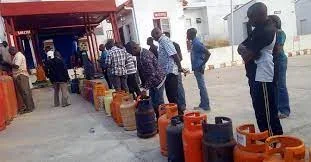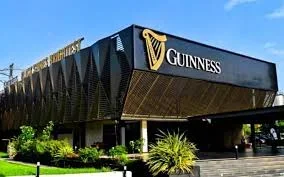
Introduction:
Rising concerns grip Nigeria as the price of cooking gas skyrockets to unprecedented levels, with a kilogramme now fetching between N1,000 and N1,200. Daily Trust's investigative report delves into the root causes and far-reaching consequences of this alarming surge in cooking gas prices.
Factors Behind the Surge:
Our investigation reveals that the price surge is partly due to the scarcity of cooking gas, primarily attributed to supply disruptions. This shortage has left consumers facing exorbitant costs for a vital household commodity.
Consumer Hardships:
Daily Trust reporters witnessed the impact firsthand, with families and businesses expressing distress over the soaring prices. Many have had to reduce their gas consumption, and some are even resorting to alternative cooking methods such as charcoal.
Blaming Weak Naira and Poor Infrastructure:
While some citizens point to the weakened national currency and limited bulk storage as contributing factors, others highlight the challenges faced by transporters due to inadequate road networks, particularly the Lagos-Kano route.
Marketers Warn of Further Increases:
Marketers warn that the price of a 12.5kg cylinder of cooking gas may reach an alarming N18,000 if the government doesn't intervene. The high cost of purchasing gas at terminals and the increased price of transportation are pushing prices to new heights.
Government Response:
The President of the Nigerian Association of Liquefied Petroleum Gas Marketers (NALGAM) calls on the federal government to take proactive measures to curb the price hike. While acknowledging the scarcity, he emphasizes the urgent need for concerted efforts to ensure that cooking gas remains affordable for all Nigerians.
A Possible Return to Firewood:
Experts express concerns that if the situation persists, many Nigerians may resort to using firewood for cooking, posing environmental and health challenges.
Government's Limited Role:
An official from the Office of the Minister of State for Petroleum Resources (Gas) reveals that the government's ability to control the cooking gas market is limited due to deregulation. However, efforts are underway to collaborate with the Nigerian Liquefied Natural Gas Ltd (NLNG) to bolster domestic supply and reduce prices.
In the face of this brewing crisis, Nigeria stands at a crossroads, balancing the demands of a deregulated market with the urgent need to ensure affordable access to this vital energy source for its citizens.



